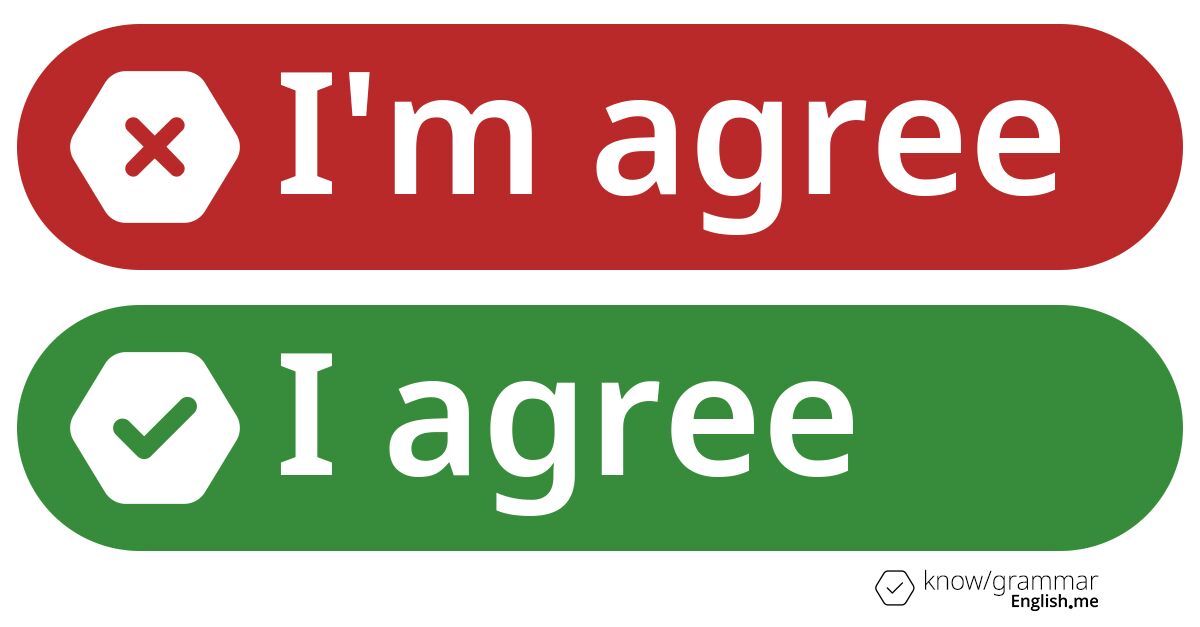The problem with "I'm agree"
Reviewed and edited by  Anwar Kareem 18/02/2025, 05:37
Anwar Kareem 18/02/2025, 05:37
English.me team member
 What kind of error is it?
What kind of error is it?

Grammatical error - subject-verb agreement and verb usage.
 Why do people make this mistake?
Why do people make this mistake?
People often make this error due to direct translation from other languages where a similar expression uses the verb "to be" with an adjective or past participle. For example, in French "Je suis d'accord" or Spanish "Estoy de acuerdo," which literally mean "I am agree." Non-native English speakers may translate these structures word-for-word into English, leading to the error.
 What is correct?
What is correct?
The correct expression is "I agree." In English, "agree" is an intransitive verb that does not require the verb "to be." It should directly follow the subject without any auxiliary verbs in the present simple tense.
 Examples of correct usage
Examples of correct usage
- I agree with your opinion.
- She agrees to participate in the project.
- They agreed on the terms of the contract.
- We all agree that this is the best solution.

 English
English español
español française
française italiano
italiano deutsche
deutsche 日本語
日本語 polski
polski česky
česky svenska
svenska Türkçe
Türkçe Nederlands
Nederlands